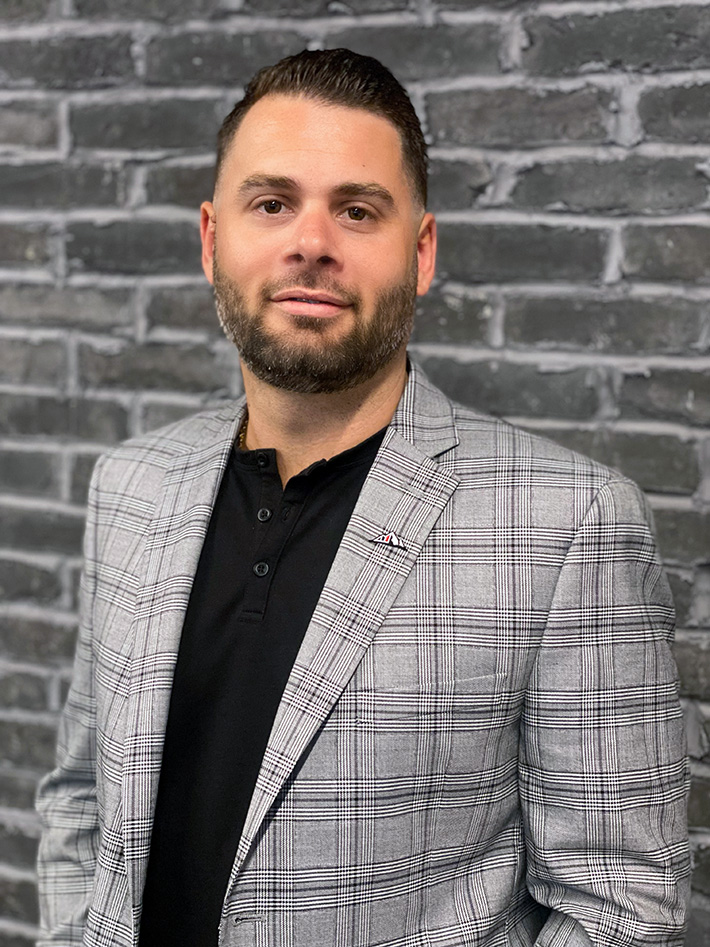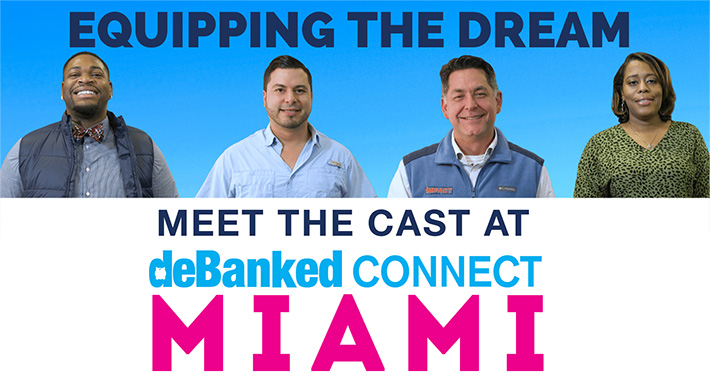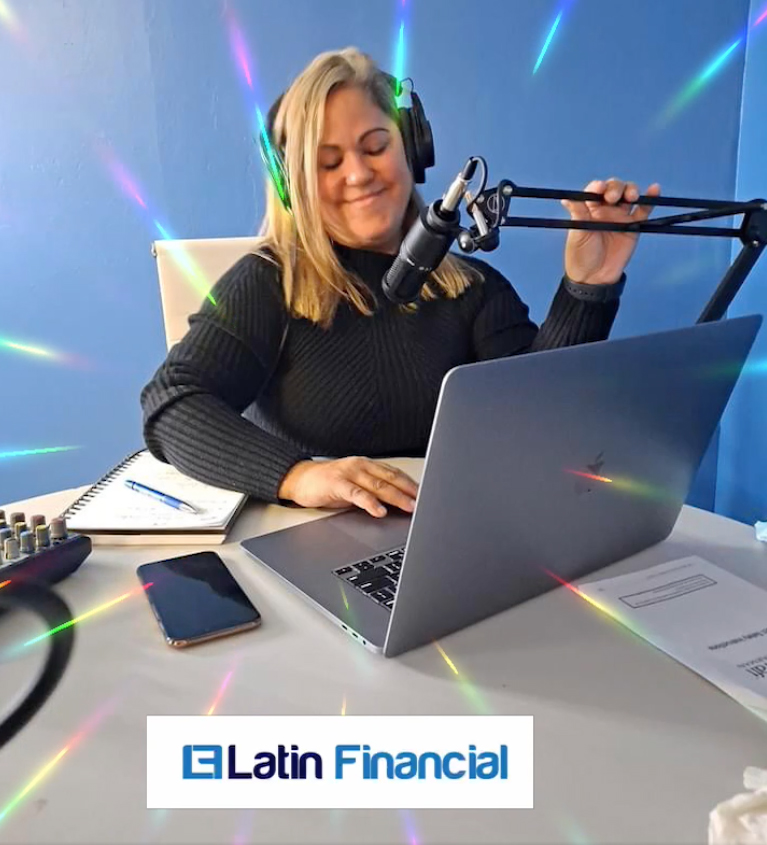Brokers
Working With Multiple Brokers for a Business Loan? Here’s What to Talk About With Them
March 15, 2023 If you decide to engage with multiple brokers at once to try and secure the best possible business loan terms, here are some tips to ensure that happens:
If you decide to engage with multiple brokers at once to try and secure the best possible business loan terms, here are some tips to ensure that happens:
1. Request a clear breakdown of loan terms and fees: You should ask each broker to provide a comprehensive breakdown of the loan terms, including interest rates, repayment schedules, and any associated fees (such as origination fees, late payment fees, or prepayment penalties).
2. Emphasize the importance of transparency: You should stress that you value transparency in the lending process and expect full disclosure of all fees, terms, and conditions. This will help you make a well-informed decision and avoid any hidden costs or unfavorable terms.
3. Ask about their lender network: You should inquire about the range of lenders they work with and their expertise in securing loans for small businesses in you specific industry. This will give you a better understanding of their ability to find the most suitable lender for you needs.
4. Mention that you are considering multiple brokers: By telling each broker that you are speaking with other brokers, you are creating a competitive environment. This may encourage them to offer more favorable loan terms in order to secure you business.
5. Discuss you business strengths: You should highlight you business’s strong points, such as a solid credit history, steady cash flow, or a well-developed business plan. This will help demonstrate to the brokers that you are a low-risk borrower, which could potentially lead to better loan terms.
6. Ask for references or testimonials: You should request references or testimonials from other small business owners who have worked with the broker in the past. This will give you an idea of their level of customer satisfaction and the quality of loan terms they have been able to secure for other clients.
From Zero to $28 Million
January 12, 2023 Back in June 2022, Eddie DeAngelis was getting ready to launch QualiFi in a Philadelphia suburb. After having started in the industry as President and partner with Bizlender in 2013 and then founder and CEO of Amerifi, LLC in 2017 (later acquired by Nav Technologies Inc.), success for DeAngelis’ newest startup was bound to draw heavily on the experience he had gained throughout his career. But, times had changed a little.
Back in June 2022, Eddie DeAngelis was getting ready to launch QualiFi in a Philadelphia suburb. After having started in the industry as President and partner with Bizlender in 2013 and then founder and CEO of Amerifi, LLC in 2017 (later acquired by Nav Technologies Inc.), success for DeAngelis’ newest startup was bound to draw heavily on the experience he had gained throughout his career. But, times had changed a little.
“In my opinion, this is probably the hardest and most competitive over the last 10 years this business has ever been,” he told deBanked. “Every deal shopping around, they’re working with multiple brokers…”
QualiFi connects businesses with funding sources. Real estate loans, AR financing, PO financing, equipment financing, and term loans are among their core products. It’s not a revolutionary business model in that of itself. The key is in execution, which by any measure the company seems to be accomplishing quite well so far. In August alone, QualiFi closed 33 deals for a total of $2.4M in financing and continued the streak until November when it eclipsed $11.3M in just one month split across 57 deals.
In roughly less than seven months since launch, DeAngelis said they’ve surpassed $28M in closed deals. To be sure, DeAngelis doesn’t take all the credit for the impressive start. Jason Maury, a QualiFi partner and VP of Sales, has been instrumental in executing the company’s strategy, DeAngelis said. Part of that strategy he shared.
“99% of all our traffic is from inbound leads,” DeAngelis said. The company runs a variety of marketing campaigns that includes social media but nearly half is attributable to referral partners.
“We have banks, a couple of credit unions, and CPAs that we work with that send us some of their clients that are either maxed out on their line of credit or just simply can’t get approved from the bank,” he said.
The company doesn’t take any of those relationships for granted, which means QualiFi reps need to be qualified to take on their tasks.
 “We have an approximate five week on-boarding process for all new hires,” DeAngelis explained, adding that it’s one of the most intensive sales trainings out there. New people to the business must go through it before they get on the phone with potential customers. All of that training is on-site at the company’s office, not something that is offered remotely. Doing this business in person is something QualiFi puts a high value on as the team is expected to be in the office Monday-Thursday. Fridays are allowed to be remote.
“We have an approximate five week on-boarding process for all new hires,” DeAngelis explained, adding that it’s one of the most intensive sales trainings out there. New people to the business must go through it before they get on the phone with potential customers. All of that training is on-site at the company’s office, not something that is offered remotely. Doing this business in person is something QualiFi puts a high value on as the team is expected to be in the office Monday-Thursday. Fridays are allowed to be remote.
There’s a little more to it. DeAngelis said that “culture and the environment is another piece” and that leadership is about supporting everyone and keeping a team mentality.
“Even after they’re done their five week training, Jason and myself are always all over the floor,” DeAngelis said. “We’re very involved in the trenches day-to-day. We do ongoing support training once a week…”
All told, even with the current state of the economy, QualiFi anticipates an opportunity to help more business owners when they will probably need it most.
“We’re remaining pretty optimistic,” DeAngelis said. “As we’re going into an even more volatile economy in the new year, I think the banks are really going to be squeezing and not really looking to put too much money out there and take any risk at all. So I think that a lot of that business is going to come our way potentially. That’s what we’re hopeful for.”
ERC And The Broker Relationship
January 11, 2023 Like many business loan brokerage CEOs across the US, Jared Weitz is familiar with the Employee Retention Credit (ERC). His company, United Capital Source (UCS), which in 2021 surpassed $1B in small business financing volume, regularly speaks to thousands of small business owners. Weitz told deBanked that through his own experience most business owners have become sufficiently aware of the ERC as well. That in turn raises the question of what role a company like UCS can play in the ERC process.
Like many business loan brokerage CEOs across the US, Jared Weitz is familiar with the Employee Retention Credit (ERC). His company, United Capital Source (UCS), which in 2021 surpassed $1B in small business financing volume, regularly speaks to thousands of small business owners. Weitz told deBanked that through his own experience most business owners have become sufficiently aware of the ERC as well. That in turn raises the question of what role a company like UCS can play in the ERC process.
“We have a few different referral partners that are lending against those credits,” Weitz said. “And that’s what we’re doing.”
In that regard, UCS is doing what it is already used to doing, connecting the business owner with a compatible source of funding. While other brokers may attempt to generate fees by assisting businesses with filing for the tax credits themselves, Weitz said he prefers to avoid the headache and/or potential liability that can come along with doing that.
“We’re able to get 100% of what a client is owed right up front,” Weitz said. “They can either have an interest-only program or a no-payments program for 12 months, and then after 12 months there would be a factor rate attached to the program that would be paid back weekly.”
UCS earns a commission when a deal goes through but ERC has not by any means become a primary driver of business, according to Weitz. Rather, it’s something that could come up during a customer consultation.
“When we’re peeling back the layers and chatting with the client on why they need funds, if they say ‘well, actually I’m falling short here and I also just filed for [the ERC] and I’m still waiting for that,’ it can be one of the options that we offer them […] and we’ll just see what they qualify for and if they’re interested in it.”
 It’s the waiting part that is creating a cottage industry around ERC. Weitz says he hasn’t heard of any business getting an ERC refund in less than 7 or 8 months and he is aware of at least one business that is still waiting for it 2 years later since filing. But just because most businesses are aware of the ERC doesn’t mean they’ve all actively pursued it. On this, UCS simply offers free helpful advice.
It’s the waiting part that is creating a cottage industry around ERC. Weitz says he hasn’t heard of any business getting an ERC refund in less than 7 or 8 months and he is aware of at least one business that is still waiting for it 2 years later since filing. But just because most businesses are aware of the ERC doesn’t mean they’ve all actively pursued it. On this, UCS simply offers free helpful advice.
“What I would say to them is ‘hey, heads up, you should probably look into this with your local accountant and payroll company, make sure you get your tax attorney or your accounting firm’s attorney involved just to make sure you’re doing it the right way.'”
Putting business owners on that path of pursuit, informing them of its existence and advising them to seek out qualified counsel to assist with it, generates no revenue to UCS, but Weitz thinks it’s important to help business owners in any way possible.
“I think it does build a bridge of trust a bit more between you and your clients because you’re showing them that you’re not solely looking at products that are beneficial to you, and you shouldn’t be doing that anyway,” Weitz said. “But I think when you’re dealing with someone there’s always that thought in their head, right? And so this has helped solidify that you’re not.”
Climbing Up The ROK
December 23, 2022
This month Patrick Manning took over as the new CEO of ROK Financial. Previously representing the company as CRO and President, Manning’s been on an upward trajectory since he first started in sales roughly eight years ago. He learned the business from founder and former ROK CEO James Webster, who will be stepping into a new role as Executive Chairman.
Manning will be overseeing the leadership team with the help of COO Shannon Treadwell and continuing to grow the organization.
“I also have a large hand in the relationships with our lenders, we are a broker, and we utilize all of the top lenders in the industry,” said Manning. “And I sit at the helm of managing and building those relationships with our lenders.”
Manning described the industry as “lacking information and education” whether this be from brokerages or business owners themselves. Taking pride in the way ROK does business, Manning went on to describe a new learning experience the company will be presenting to the industry.
“I’m going to continue to help push on the company initiative of rolling out ROK-U or ROK University. ROK-U is an education platform which encompasses ROK’s 10-15 years of broker experience to an easy-to-follow training platform geared to properly educate those that are looking to enter into the industry,” said Manning.
ROK’s goal is to improve the way brokers interact with business owners and carry out transactions. This fully remote program will be available to anybody interested in entering the industry where they’ll learn proper techniques as well as language. The company soft launched the program in May with 30 enrolled students from all over the country. Testing the program out to see what areas needed improvement, ROK-U will officially launch in January 2023. It is also free of charge and will be live on their website.
“The team has been working diligently to roll out new technologies to help with this initiative. Those that enroll in ROK-U will have access to best-in-class technologies powered by Salesforce Communities to assist in training and getting their businesses off the ground,” said Manning.
The company will also be introducing the ROK Tour, a new networking event in eight major cities throughout the U.S to help promote ROK University.
BROKER FAIR IS BACK! – NYC
May 2, 2022 Broker Fair is coming back to New York City on October 24th at the New York Marriott Marquis in Times Square. Anticipated to be the biggest Broker Fair ever, brokers from the small business lending, commercial financing, revenue-based financing, leasing, factoring, and MCA industries, will come together in the heart of New York.
Broker Fair is coming back to New York City on October 24th at the New York Marriott Marquis in Times Square. Anticipated to be the biggest Broker Fair ever, brokers from the small business lending, commercial financing, revenue-based financing, leasing, factoring, and MCA industries, will come together in the heart of New York.
“It’s amazing to have participated in the industry’s growth over the last four years,” said Broker Fair founder Sean Murray. “Our first event launched in Brooklyn in 2018 and now the demand has brought us into a massive newly-renovated venue in the middle of Times Square.”
Brokers, lenders, funders, factors, equipment financiers, fintechs, and the whole small business finance ecosystem can expect a full day of education, inspiration, and high quality networking opportunities.
Register here. For inquiries or questions, email events@debanked.com.
See last year’s sizzle reel:
Meet The Aspiring Brokers Who Competed on Camera
March 10, 2022
The full cast of Equipping The Dream, the first b2b sales reality show, will reunite at deBanked CONNECT Miami on March 24th.
RJ Rochelle, Juan Carlos Marcano, Thomas Long, and Angela Thompson (above in order), all participated in a week long sales training last November that was captured on camera. They competed for a grand prize that was won in the season finale that aired just recently on March 3rd. Equipping The Dream is the defining b2b sales reality show. Now you can meet the brokers and the trainers that helped them in person!
Only a limited number of tickets to deBanked CONNECT Miami are left and sponsorships have already sold out. This will be deBanked’s 4th event in Miami since 2018.
All six episodes of Equipping the Dream are available on deBanked TV FREE.
Latin Financial Launches First Lending Podcast in ‘Spanglish’
February 4, 2022 In an inaugural move for small business financing this week, Latin Financial launched the first ‘Spanglish’ podcast for funders, lenders, merchants, and brokers titled the Latin Financial Podcast. Hosted by the company’s CEO Sonia Alvelo and co-hosted by Underwriter Ruth Alustiza, Latin Financial hopes to create an open forum of discussion and education about how Latino-owned businesses can get access to different types of financial products; all in two different languages.
In an inaugural move for small business financing this week, Latin Financial launched the first ‘Spanglish’ podcast for funders, lenders, merchants, and brokers titled the Latin Financial Podcast. Hosted by the company’s CEO Sonia Alvelo and co-hosted by Underwriter Ruth Alustiza, Latin Financial hopes to create an open forum of discussion and education about how Latino-owned businesses can get access to different types of financial products; all in two different languages.
“It was so much fun, but so scary,” said Alvelo, when asked about her experience recording on her first episode. “[I’m doing this] to make sure the merchants and clients have and will have the right information, I know I’m breaking barriers of languages, it’s the right thing to do.”
While still in its infancy, Alvelo is expecting the show to take off. Her target audience among merchants is a growing group of Latino-owned small businesses who have been historically underbanked. Offering episodes in both English and Spanish, the podcast hopes to not only educate the show’s listeners on how small business lending works, but also hopes to serve as a crash course in either Spanish or English for those who are already members of the non-bank finance world.
The show will have funders, lenders, merchants, and staff of Latin Financial on as guests, according to Alvelo. The show has begun a stream of content that will be released on a regular basis that is being uploaded on platforms like Apple Podcasts, Google Podcasts, and Spotify.
“We are doing one episode per week, said Alvelo. “We’re going to add guests, they are already asking me to attend, and lenders. I’ll be doing back and forth, Spanish and English for sure.”
Alvelo seems confident that the show can separate itself from the countless other finance podcasts that exist. With a dynamic of two languages, two cultures, complex financial products, and revolving guests, it seems as if Latin Financial has discovered a niche in the business media space. “The audience can listen in Spanglish about what we do to help business owners in the United States and Puerto Rico. It’s a new way to stay informed, get educated on updated programs in the financing Industry, all in two languages,” Alvelo said. “It’s Spanish and English, equals Spanglish!”
A weblink to the show can be found here.
As Alternative Finance Leaves NYC, Long Island May Be The Next Best Option
January 26, 2022 As things like cost of rent, remote work, and incoming disclosure laws cause uncertainty in the hub of alternative finance, many in the industry have decided to leave New York City. Some however, say the perception of a mass exodus is false, and it is Long Island that checks all the boxes for alternative finance’s new home.
As things like cost of rent, remote work, and incoming disclosure laws cause uncertainty in the hub of alternative finance, many in the industry have decided to leave New York City. Some however, say the perception of a mass exodus is false, and it is Long Island that checks all the boxes for alternative finance’s new home.
“My company started on Long Island and it’s where most of our staff is from, so logically it made sense to keep it there in the beginning of [our] journey,” said Jared Weitz, CEO of United Capital Source. “It’s close to people’s homes so the commute is less for staff and the office space can be 10 to 40 percent less on cost and your loss factor on space is less so the space you do rent, you actually get to use more of.”
According to Weitz, employees in the industry lost a desire to commute during the pandemic. When transitioning from in-person work to remote and then back to in-person, it seems like a commute to Manhattan was a tough sell.
“During [the pandemic], a ton of larger companies who had massive offices in Manhattan ticked it down,” said Weitz. “Staff also didn’t want to commute anymore and so many offices in the city have either moved out to Long Island or stayed in [New York City] to smaller offices and did [remote work] with employees.”
 When asked about the value of a Downtown Manhattan address on a business card, Weitz abruptly dismissed the notion that names like Wall, Rector, and Pine still hold the same prestige as it did in years past.
When asked about the value of a Downtown Manhattan address on a business card, Weitz abruptly dismissed the notion that names like Wall, Rector, and Pine still hold the same prestige as it did in years past.
“No, no, no, no one looks at that anymore,” Weitz said. “Most often people are focused on client experiences, so reviews online, time in business, online presence, what can be found about them.”
Weitz spoke on the quality of employees that come from the New York area, and how their work ethic and work experience are some of the best the industry has to offer.
“Look, I’m from New York so I’m partial and I can see why people say [this]. New York [workers] have a certain grit, and a certain fight with laser focus determination.”
“I think there are people who are smart and who hustle anywhere,” Weitz continued. “While southerners may have a laid-back lifestyle, I know plenty who hustle hard, [but] I do think you can always tell the difference from a New York sales rep versus another.”





























